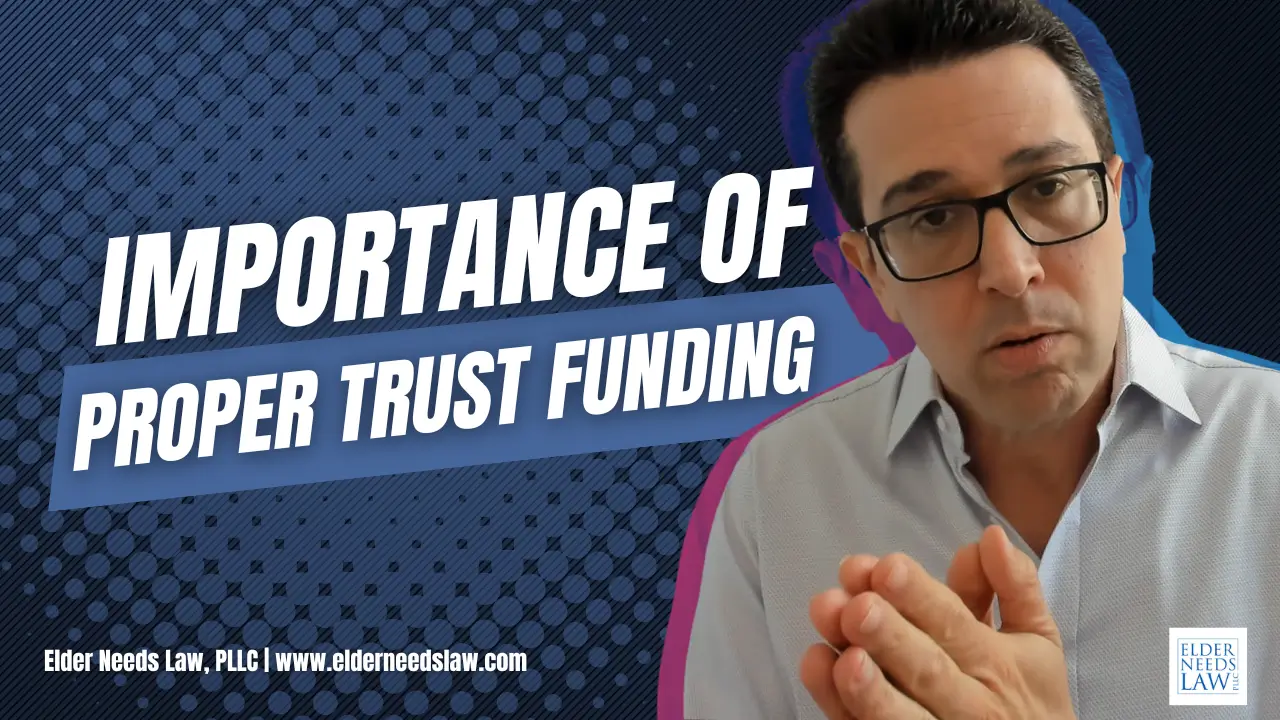The Importance of Incapacity Planning

There is no magic spell to help prevent life's unexpected surprises. However, there are some simple steps you can take to ensure that you are prepared to handle a sudden illness or life-threatening injury. At the top of this list of steps is incapacity planning. The term itself may sound a bit scary, and most Floridians seem to find any excuse to avoid thinking about the prospect of their death. But the reality is that your future without an incapacity plan is even scarier. Below is a look at the key aspects of incapacity planning and the key to ensuring you are prepared for what may lie ahead.
What exactly is incapacity planning and why is it so important?
Incapacity planning is a process that involves the preparation of customized legal documents to authorize people of your choosing to handle your health care choices and financial decisions on your behalf in the event that you are not able to do so yourself. There are two primary reasons why this type of planning is so important:
- To ensure that health care decisions are made on your behalf in a way that is consistent with your beliefs and preferences.
- To make sure that any financial decisions made while you are incapacitated reflect your wishes and are made by a person you trust.
When do people begin thinking about an incapacity plan?
An incapacity plan is not like income taxes, a mortgage, or an insurance premium. There is no due date set in stone. But like a late house payment or failure to file your taxes, there is a host of unpleasant consequences if you fail to create a plan. While timing varies from person to person, most people begin to think about incapacity planning when they are experiencing one of these three situations:
- A long-term or terminal illness: A new diagnosis of Alzheimer's Disease, cancer, or another debilitating illness will often prompt a person to swing into action and begin planning their estate right away.
- The loss of a family member or close friend: Many Floridians have watched someone they love become ill or incapacitated. They may also witness an incapacitated loved one's healthcare or finances be poorly managed (or perhaps even worse, unable to be managed such as in the case where Medicaid planning is needed to help pay for long-term care expenses) These situations often motivate others to plan for the future.
- A life-changing event such as a marriage or divorce: People sometimes reassess their assets and personal plans during a divorce, separation, or birth of a child. The death of a spouse or a move to another state can also prompt incapacity planning.
Who benefits from incapacity planning?
Everyone. When you are knee-deep in the planning process, you may feel that you are focusing a lot of time and energy on yourself and your preferences. But the truth is you are doing a favor for your loved ones, as well as legal authorities. Without an incapacity plan, your loved ones could be left in the uncomfortable position of being unable to help you or make decisions on your behalf. But with an incapacity plan, you erase any uncertainty and provide a legal framework within which your friends and family can act on your behalf.
What documents are involved with incapacity planning?
All the planning in the world is useless unless you have completed the proper legal paperwork needed to back up your plans. The Family Caregiver Alliance highlights some key documents that everyone should have:
- Durable Power of Attorney (POA): This document grants broad decision-making power to a person of your choosing, also known as an agent.
- A living will: Also called an Advanced Care Directive, a living will, allows you to decide, in advance, what life-sustaining treatments you want provided (or withheld) if you are in a terminal or end-stage condition with no reasonable hope of surviving.
- Health Care Surrogate Designation: This allows you to designate who can access your medical records or make medical decisions on your behalf if you are unable to make health care decisions for yourself.
- Revocable living trust: This document enables your assets to be held and managed while you are incapacitated, and helps avoid probate if you die.
In addition to these documents, there are others that may apply to your unique situation. If you are not sure whether you have all the relevant documents you need, ask an experienced estate planning lawyer. You may discover you have omitted critical paperwork or have documents that would not hold up in court.
What is the key to ensuring you are prepared for the future?
Planning for your future today is vital to ensuring that your best interests are protected if you are incapacitated. The best way to make sure you are prepared for the future is to hire a skilled incapacity planning attorney. An estate planning or elder care lawyer will guide you through the planning phases and review all of your documents to confirm they are comprehensive, current, and recognized under state law. With the expertise of an estate planning attorney, you can experience peace of mind knowing that your plans and wishes are clearly and legally conveyed.







